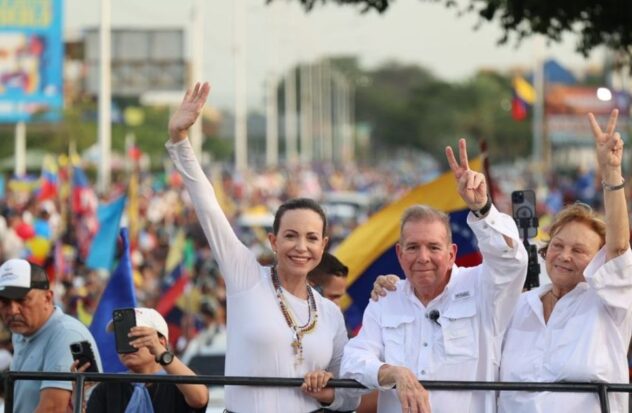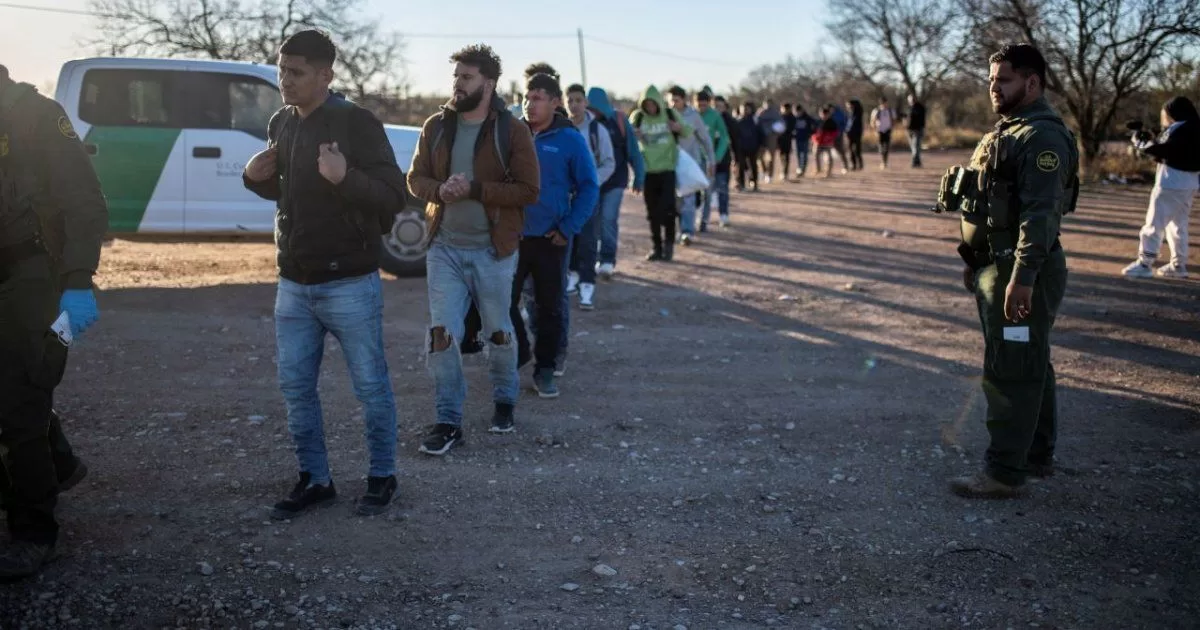On July 5, the South American country once again commemorated being the first nation to emancipate itself from the domination of the Spanish crown, since 1811, with the construction of the Republic, after the signing of the Act of Independence.
However, two centuries after this historic feat, Venezuelans have been facing the deterioration of their freedom for more than 20 years due to the imposition of a dictatorial regime that has established one of the worst political, economic and social crises in its republican history, forcing more than seven million citizens to seek better opportunities in other countries.
Are we really free?
Nelson Chitty La Roche, Venezuelan politician, writer and lawyer reflected on the freedom of Venezuela and pointed out THE AMERICAS DAILY that, at present, the independence of the Caribbean nation “is unclear and hesitant.”
“There are glimpses, but it is not what was hoped for in 1811 by the pen of deputy Juan Germán Roscio, who led the heroes to declare Venezuela as an independent State, made up of the seven provinces belonging to the former Captaincy General of our country,” he said.
Chitty La Roche said that Venezuelan society is currently seeking regeneration, and therefore “must reinvent itself if it wants to fully return to the ideals of July 5, 1811, considered a constituent action by which Venezuelans formed what was called the Confederation of Provinces of Venezuela. A transcendental event that had begun the previous year, on April 19, 1810, when the independence of Venezuela was proclaimed.”
The expert also questioned whether Venezuela is truly free in the 21st century, and mentioned that it can still be said that “this libertarian dream is a genuine, legitimate product of the desire for freedom that was in the hearts, consciences and letters of the women and men who were working for the signing of the Act of Independence.”
“I would say that we are free, but at the same time we are not. Yes, because the ideals remain alive, those flowers that appeared there have lasted forever in Venezuela. The idea that we have to be a free society has remained, the problem is that it has not managed to take shape in a way that can sustain itself and give us the stability that we need,” he emphasized.
Chitty La Roche also said that after so many years of achieving freedom, Venezuela is going through a sordid period, “in which it has been deconstitutionalized since 1998 and deinstitutionalized since 2001, when everything that was institutional was compromised. The Venezuelan State does not abide by the agreements, treaties and pacts it signs, but rather has the pragmatic government of ideologization that covers the entire spectrum of public power transversally.”
Under a “satrapy”
At the same time, the former deputy of the Venezuelan Congress assured that today Venezuela cannot be called a Republic, because it is still “under a satrapy,” which means the domination of respect for human rights and above all respect for the sovereign exercise of the Venezuelan community.
“We live in a country where there is no rule of law, which indicates that there is no constitutionality, and the political and civil rights of citizens are not respected. A situation that has been observed in other regimes such as those of Cuba and Nicaragua,” he said.
In this regard, he explained that the best example is the maneuvers and obstacles imposed by the Nicolás Maduro regime on the presidential elections scheduled for July 28, with the intention of staying in power, through actions such as persecution, political disqualifications, repression and arbitrary arrests.
Such is the case of opposition leader María Corina Machado, who is subject to a political ban imposed by the dictatorship from running for public office for 15 years. This prevented her from participating in the electoral process, despite being elected by the Venezuelan opposition as its presidential candidate, with more than 90% of the votes in the opposition primaries.
Given these circumstances, Machado supports the candidacy of the democratic opposition represented by Edmundo González Urrutia and, in this regard, Chitty La Roche maintains that the elections of July 28 could become a historic gesture for that country.
“There we will risk everything against those who, by means of weapons or oppressive mechanisms, intend to continue the disaster into which they have turned Venezuela. The population, united in a single leadership, which is that of María Corina Machado, has committed to change things and fight for a free country,” he said.
The Venezuelan writer stressed that Venezuela has decided to raise its voice and legitimize the independence of the republic, taking up the ideals of the independence heroes Simón Bolívar, Francisco de Miranda, Antonio José de Sucre, among others.
Coup d’état against sovereignty
The professor at the Central University of Venezuela (UCV) also pointed out that one of the rights that is most violated in the South American country is the sovereignty of the people, which is exercised through free elections and the power to choose, as established by the Constitution and the law.
“When political rights are violated, citizenship is compromised. The Venezuelan people voted during the opposition primaries for María Corina Machado to be their president, their voice and their leadership towards a democratic transition, and due to the regime’s dirty maneuvers that violate the Constitution and all common sense, María Corina has been prevented from being a candidate,” he stressed.
At the same time, Chitty La Roche asserted that these actions constitute a “coup d’état” against the sovereignty of Venezuelans who want to express themselves freely at the polls.
“We will see what happens on July 28. Everything seems to indicate that change is coming and we will see if they are capable of accepting the popular will, God willing, because otherwise we could see how a situation is triggered that could lead to a historic tragedy in which the people want to take to the streets to impose their sovereignty,” concluded the university professor.
@Lydr05
Source: INTERVIEW


